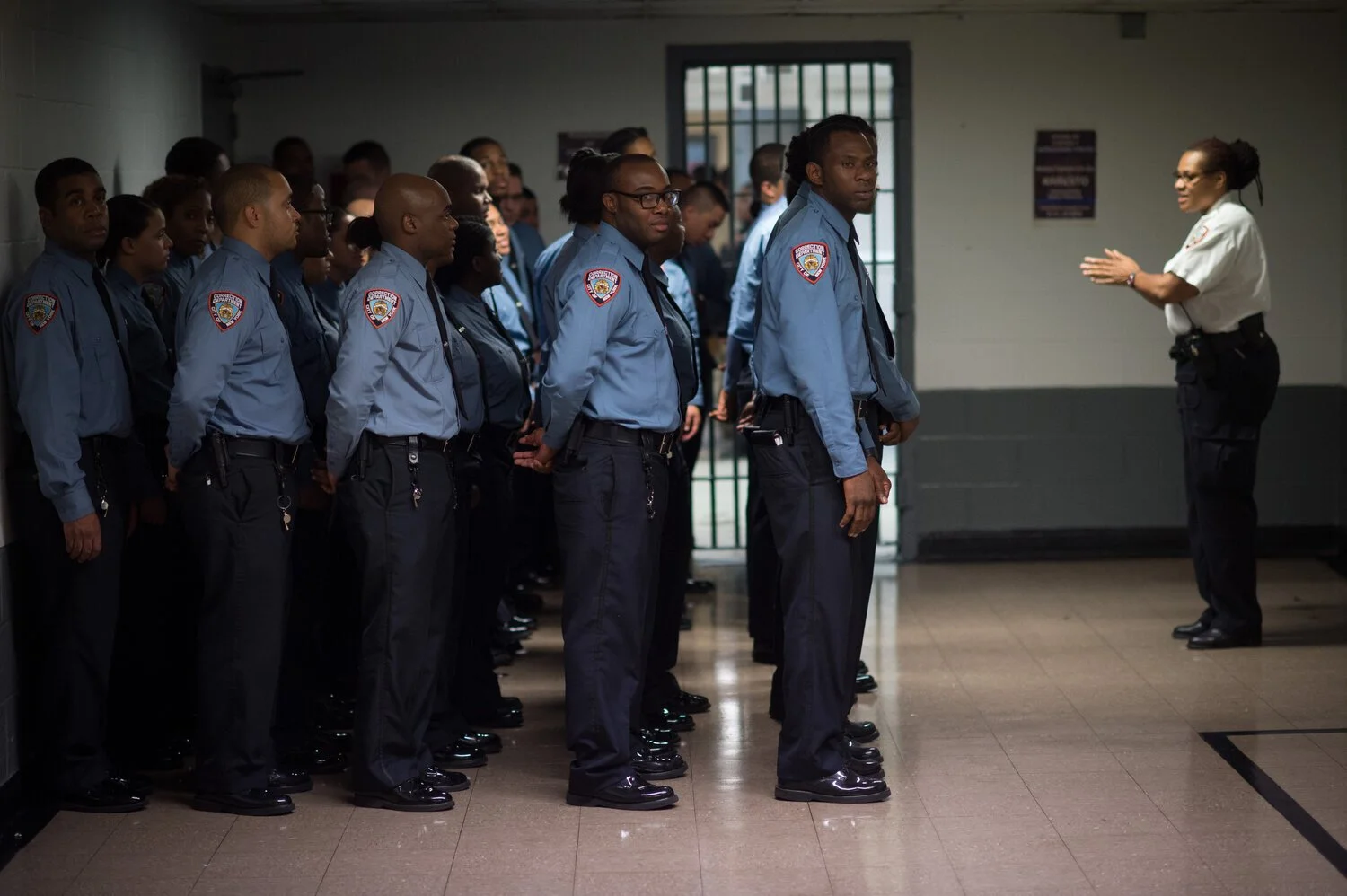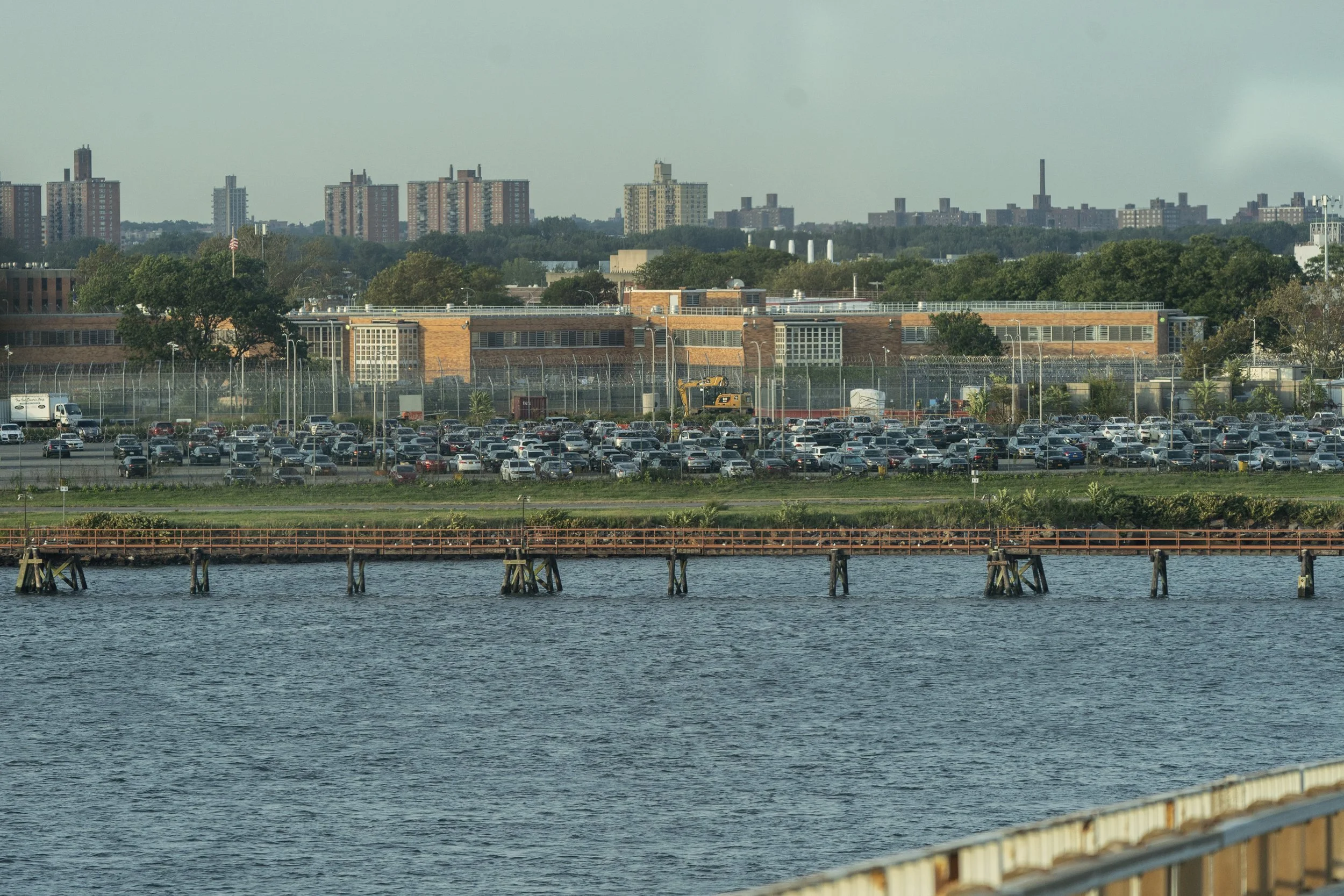DOC sued for allegedly denying FOIL request about lack of services on Rikers
/The Legal Aid Society sued the DOC on Friday for denying a FOIL request concerning complaints made by detainees about lacking services stemming from the correctional officer staffing shortage. File photo by Michael Appelton/Mayoral Photography
By Jacob Kaye
Fewer correctional officers on Rikers Island means fewer services available to those incarcerated there.
That’s what attorneys with The Legal Aid Society and their clients say has been the case during what has been the deadliest year in the city’s jail complex since 2016. However, they don’t have the data to show it because the New York City Department of Correction won’t hand it over, Legal Aid attorneys say.
The allegation is at the center of a new lawsuit filed Friday in Queens County Supreme Court. The Legal Aid Society claims that a Freedom of Information Law request filed earlier this year with the DOC seeking data on the numbers and types of complaints concerning lack of services filed by incarcerated people has yet to be returned.
The attorneys hope that, with the lawsuit, the data will be released.
“Access to critical services has always been an issue for our incarcerated clients, and every indication points to a situation that is worsening,” said Alexandra H. Smith, a staff attorney with the Prisoners’ Rights Project at The Legal Aid Society.
In order to move from a housing unit on Rikers to a building that offers services, detainees are required to be escorted by a corrections officer. However, officers have missed work in record numbers over the course of the past year, which has meant fewer officers are available to move detainees from one part of the jail to another, the lawsuit says.
In a status report filed by the federal monitor on Wednesday, data shows that anywhere from 1,400 to 1,600 uniformed staff were out sick and anywhere from 17 to 52 were AWOL on any given day from late September until early November.
In total, about 29 percent of uniformed staff have been unavailable to work, intentionally or unintentionally, in the past few months, the monitor said.
Attorneys say this has led to a deprivation of nearly every available service, including meetings with attorneys, visits with family members, court appearances, medical and mental health care, recreation, the law library, phones, religious services, commissary and food and water.
The complaint has been echoed by those incarcerated on Rikers.
An incarcerated person who has been held on Rikers for around three years and who has yet to see a trial, told the Eagle in September that he’s seen services dwindle in the past year.
Speaking on the condition of anonymity, he said that basic services, like haircuts, have been hard to come by.
“There was no barber shop for two months – the barber shops were open in the streets but it took a year and a half to get the barber shop program running and it's still not running,” the detainee said. “The only time you can go is if you have a court date, then they’ll try their best to get you out there.”
Detainees have also had issues getting to the law library, where they could study up on case law and learn about the ins and outs of their legal situation.
“We have 6,000 people fighting for their freedom, fighting to know what the due process is and how they can defend themselves during the due process,” he said. “Whether you're going to go home or not, you want to have the best outcome possible, and it's always good to help yourself.”
The incarcerated person said that deprivation of services often leads to detainees feeling helpless and, in some cases, to violence.
“It wears and tears you, it's made to break your spirit completely,” he said. “This is the mental state of most inmates, it's just gone. It’s just like being kidnapped, you just start believing that this is the way things should be. That's that's all you know – you literally forget what humanity is, and you fall to the conditions of the present and what that results in is that you're always hostile, you're always defensive, you're always terrified.”
Attorneys with The Legal Aid Society said they requested the DOC turn over information on the number and types of complaints made by incarcerated people who say they’ve been denied essential services on Rikers. After the request was denied, LAS sued on Friday. AP file photo by Jeenah Moon
Smith said that attitude is reflected in The Legal Aid Society’s clients.
“I've had so many reports from individuals telling me that they do not feel like they're being treated like a human being,” Smith told the Eagle. “It's the regular deprivation of basic services, when you are confined in an area that’s not clean, you're not getting access to showers, food, and recreation.”
Beyond the mental toll the lack of services can make on detainees, they can also affect your future in the criminal justice system, according to Robert Quackenbush, a staff attorney at The Legal Aid Society Prisoners' Rights Project.
“We've also seen multiple emails from separate attorneys over the last couple of months, explaining that their clients are going to trial soon and they need a haircut badly,” Quackenbush said. “They haven't had a haircut in months and months, and [the attorneys] ask, ‘How am I going to explain this to the jury?”
“It's difficult to imagine how a judge would allow evidence in about why this person isn't shaven, and why this person looks filthy,” he added. “It’s having real world impacts.”
The Legal Aid Society first filed the FOIL request on June 20, 2021, after receiving data from a similar request filed about a year earlier. After not hearing back from the department for a week, they followed up on the request, the lawsuit states.
The DOC has yet to respond, the suit alleges.
Despite the fact that the pandemic has helped cause the staffing shortage, Quackenbush said the lack of escorts is not a new problem.
“The lack of escorts and escorts not being available for services is one of the most common complaints that our paralegals get who speak to clients on the phone,” Quackenbush said. “This is a long-standing problem, it long pre-exists the current staffing crisis, it won't be fixed after officers start coming back to work, and so, we're trying to get to the root of this.”
The Department of Correction referred the Eagle to the City Law Department for comment.
A spokesperson for the Law Department said the lawsuit is currently being reviewed.





